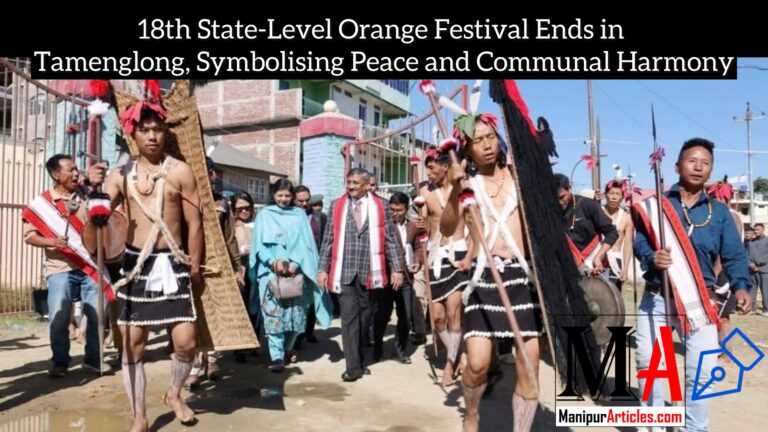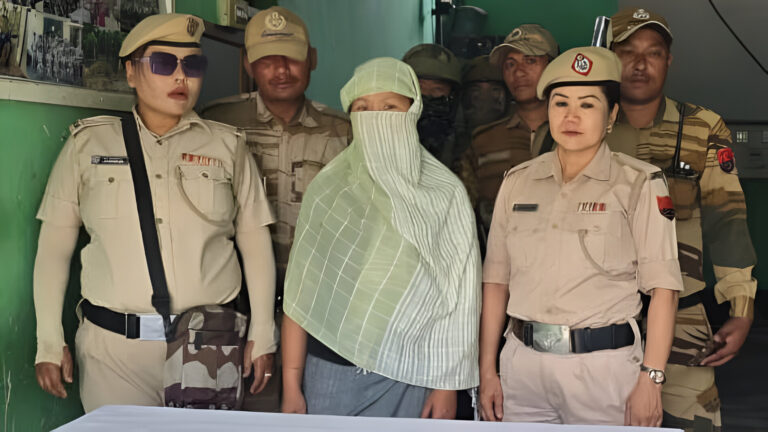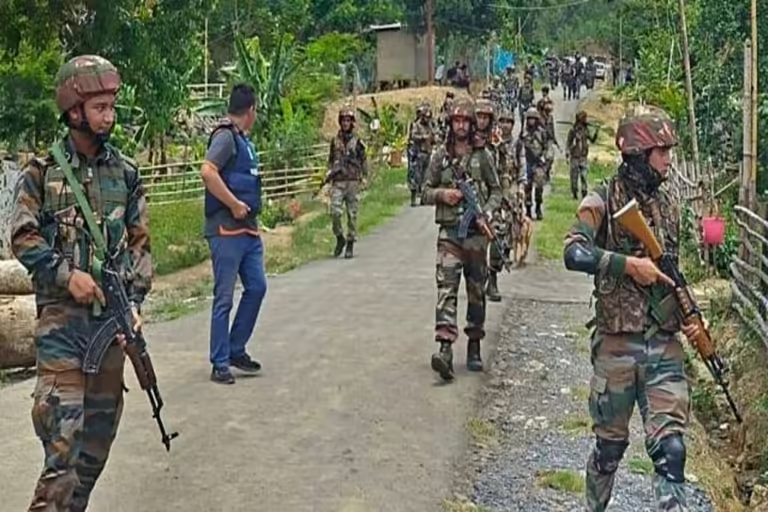Kuki-Zo MLAs Demand Separate Administration in Manipur: A Call for Change
Summary
Recently, Kuki-Zo MLAs in Manipur wrote to the Governor, asserting that the terms of the recently adopted Hill Areas Committee (HAC) resolution for ad-hoc Autonomous District Council (ADC) committees are unconstitutional. They are advocating for a separate administration for the Kuki-Zo communities, highlighting concerns about representation and governance. This move has sparked discussions about the political landscape in Manipur and the future of regional autonomy.
Understanding the Political Landscape in Manipur
Manipur, known for its rich cultural diversity, is home to various ethnic communities, including the Meitei, Kuki, and Naga tribes. Each of these groups has its unique identity, culture, and political aspirations. However, the ongoing conflict between these communities has often led to tensions, raising questions about governance, representation, and the rights of minority groups.
In recent developments, Kuki-Zo MLAs have taken a bold step by reaching out to the Governor of Manipur, demanding a separate administration. But why are they making this demand now? What does this mean for the future of Manipur? Let’s dive deeper into the reasons behind this significant political move and its implications.
The Context of the Demand
1. Historical Background
To fully grasp the current situation, we need to consider the historical context. The Kuki-Zo communities have long felt marginalized in the political framework of Manipur. For years, they have voiced concerns over their representation, particularly in decisions that affect their lives and territories. The demand for a separate administration is not new; it stems from decades of perceived neglect and inadequate political representation.
2. The HAC Resolution: A Controversial Turning Point
The recent resolution adopted by the Hill Areas Committee (HAC) aimed to establish ad-hoc Autonomous District Council (ADC) committees for better governance. However, Kuki-Zo MLAs argue that this resolution is unconstitutional and fails to address their needs adequately. They contend that the HAC has historically favored certain communities over others, leaving the Kuki-Zo populations feeling disenfranchised.
In their letter to the Governor, the MLAs emphasized that the terms outlined in the HAC resolution do not reflect the interests of their constituents, further fueling their demand for separate administration. It’s like trying to fit a square peg into a round hole—when the system doesn’t work for you, you need to find another solution.
Key Concerns Raised by Kuki-Zo MLAs
1. Lack of Representation
One of the primary concerns driving the demand for a separate administration is the lack of representation for the Kuki-Zo communities in the existing political framework. The MLAs argue that the current system does not provide adequate platforms for their voices to be heard. This marginalization has made it difficult for the Kuki-Zo communities to advocate for their rights and interests effectively.
2. Governance Issues
Kuki-Zo MLAs have highlighted governance issues in the Hill Areas, stating that the current administrative setup does not cater to the unique needs of their communities. The demands for separate administration stem from the belief that localized governance will enable them to address pressing issues such as education, health care, and infrastructure more effectively. They envision a system where decisions are made by people who understand their specific challenges and cultural nuances.
3. Security Concerns
With ongoing tensions between different ethnic groups in Manipur, security has become a major concern for the Kuki-Zo communities. They feel vulnerable amidst political unrest and fear that their safety is compromised in the absence of a dedicated administrative structure. The demand for separate administration is partly rooted in the desire for a secure environment where their rights and interests are protected.
The Broader Implications of the Demand
1. Potential for Conflict
The demand for a separate administration could exacerbate existing tensions among different communities in Manipur. While Kuki-Zo MLAs seek to assert their rights, other groups might view this as a threat to their own interests. If not handled carefully, this could lead to further conflicts and instability in the region.
2. Impacts on Governance and Policy-Making
If the demand for separate administration is granted, it could lead to significant changes in the governance structure of Manipur. This might result in the establishment of autonomous councils that cater specifically to the needs of Kuki-Zo communities, potentially reshaping policy-making processes in the state. However, it’s crucial to ensure that such changes are inclusive and consider the interests of all communities to maintain harmony.
3. National Attention on Ethnic Rights
This situation draws national attention to issues of ethnic rights and governance in northeastern India. The central government may need to intervene to mediate discussions between various groups to find a sustainable solution. How the central authorities handle this situation could set a precedent for addressing similar demands in other regions of India, highlighting the delicate balance between autonomy and unity.
Steps Forward: Navigating the Political Terrain
1. Open Dialogues
To address the concerns of Kuki-Zo MLAs and foster a peaceful environment, it’s essential to initiate open dialogues among all stakeholders. The government, community leaders, and political representatives should come together to discuss the demands and explore possible solutions. Creating a platform for constructive discussions could help bridge the gaps and foster understanding.
2. Inclusive Policy-Making
It’s crucial that any policy changes consider the voices of all communities in Manipur. Inclusive policy-making can help address the unique needs of different ethnic groups while ensuring that no one feels left out. This collaborative approach can lead to more effective governance and greater harmony among the diverse populations of Manipur.
3. Empowering Local Governance
Strengthening local governance structures can help address the specific needs of communities. By empowering local bodies and ensuring they have the necessary resources, the state can provide better services while fostering a sense of ownership among residents. This could be a step towards greater autonomy for the Kuki-Zo communities without undermining the interests of others.
Conclusion: A Call for Unity and Understanding
The demand for separate administration by Kuki-Zo MLAs is a significant moment in the political landscape of Manipur. While it stems from genuine concerns about representation, governance, and security, it also presents challenges that require careful navigation. The way forward lies in open dialogues, inclusive policy-making, and empowering local governance.
By working together, communities in Manipur can find solutions that respect the rights of all groups and foster a more harmonious and prosperous future. Let’s hope this call for change leads to greater understanding and cooperation among the diverse populations of this beautiful region.
FAQs
- Why are Kuki-Zo MLAs demanding a separate administration?
- They seek greater representation, improved governance, and enhanced security for their communities.
- What are the concerns regarding the HAC resolution?
- The Kuki-Zo MLAs believe the HAC resolution is unconstitutional and fails to address their community’s needs adequately.
- How could this demand impact the political landscape in Manipur?
- It could lead to increased tensions among communities and significant changes in governance structures.
- What steps can be taken to address these demands?
- Initiating open dialogues and inclusive policy-making can help address concerns and foster understanding.
- What is the broader significance of this demand?
- It highlights the ongoing issues of ethnic rights and governance in northeastern India, potentially influencing similar demands elsewhere.




